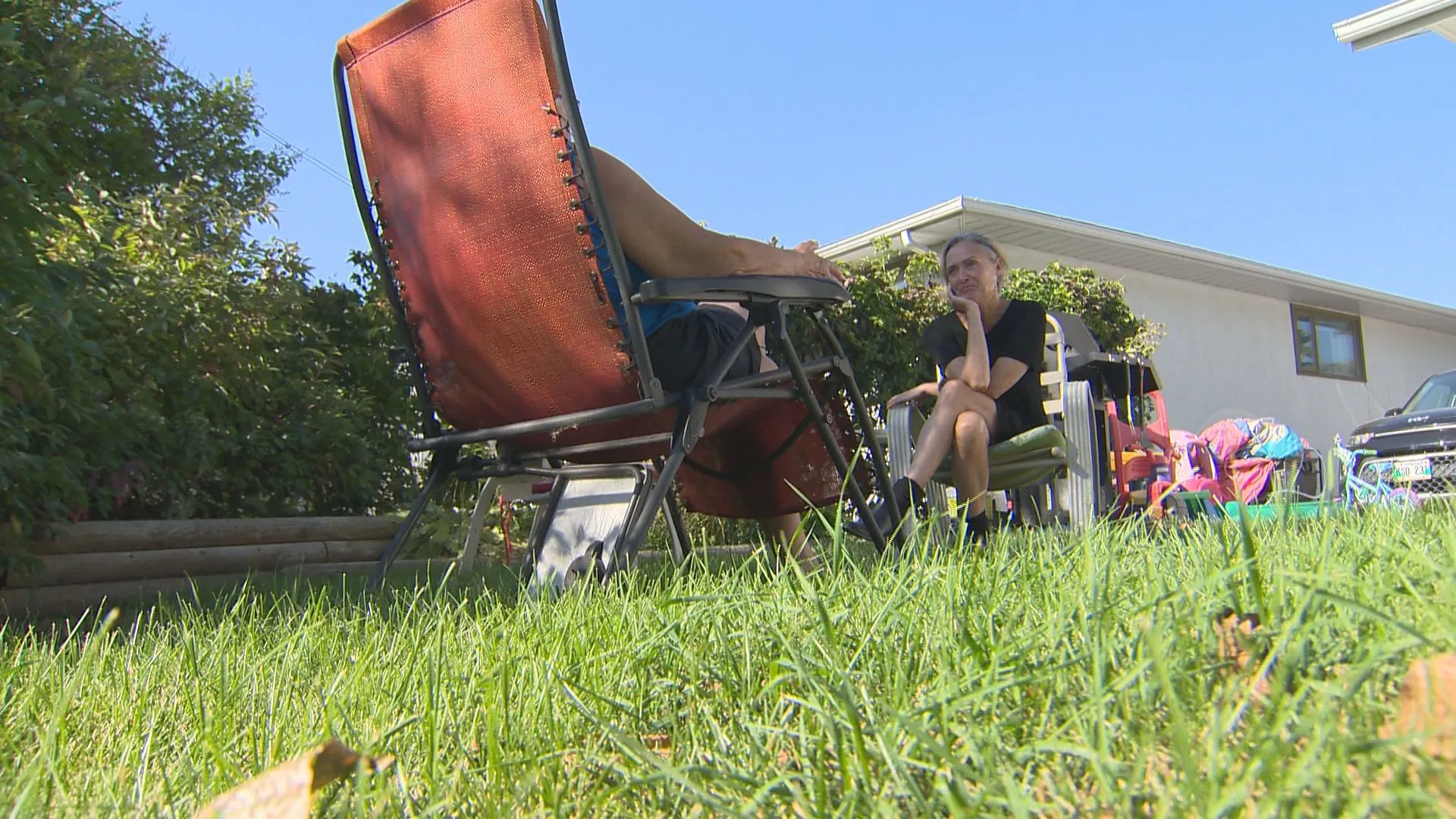A Winnipeg man hopes a health care lesson has been learned after he was left dangerously close to death from a severe staphylococcus infection while he says staff treated him like a drug-seeker with kidney stones.

Lawrence Reimer’s day began with back pain when he woke Aug. 19. The roofer thought he just slept weirdly and went to work.
“About three hours into my shift, I just told I told the guy that I was working with that was driving me around, I have to go home,” Reimer recalls.
“The pain in my back had already gotten to the point where I was pretty much keeled over almost all the way.”
It worsened, so he called an ambulance, which took him to Concordia Hospital.
“I told them about the pain in my back and the pain in my chest and they kind of summed it up — kidney stones.”
But it wasn’t. No one knew at the time a sore from a roofing harness had led to a staph infection that spread into his bloodstream, spine and one of his lungs.
Hours passed in the ER without him being examined, he says.
“I was losing function of my legs and the pain was getting so intense that I was just curled up into a ball. The pain in my chest had grown to a point where I couldn’t breathe.”
- AI ‘early warning’ system shows promise in preventing hospital deaths, study says
- Hospital shaving elderly Sikh patient without consent ‘cannot happen again’: WSO
- Doctors thought she had the stomach flu. But it was near-fatal sepsis
- University of Calgary physician assistant program aims to reduce strain on Alberta health system
Impatient, unpleasant and in pain — and still in dirty work clothes — he crawled to find a nurse.
“I asked her, like, ‘I’ve been asking for help. Are you guys ignoring me?’ And her response was, ‘Yes, we are ignoring you. Now shut up and get back to your bed or we’re calling security and throwing you out,'” Reimer says.

Get weekly health news
“My first thought was panic. What happens when these security guards go and throw me out and I can’t walk, I can’t get anywhere? If I already called 911 and this hospital threw me out because I was begging for help, what are the other hospitals going to do?”
Reimer’s mother, a retired nurse of 40 years, made her way to Concordia to intervene.
“I am feeling bad that I have to say this about my fellow sisterhood of nurses, they felt he was drug seeking,” says the mother, whom Global News isn’t naming as she still has dealings with the health care system — a system that she says “is just so broken. And I wish I had the answer to fix it.”
“He was mis-cared for. … On top of things that were going on with him, there’s the drug crisis and there’s no staff and there’s nowhere to turn. They’re just so overwhelmed,” she says.
Eventually, hospital staff ran the necessary tests and found the infection. Reimer has been on powerful IV antibiotics for almost a month and still has until mid-October to go.
A spokesperson for the Winnipeg Regional Health Authority says: “We are committed to improving the quality of care for our patients and review every patient concern to identify gaps and make improvements. Now that we have learned about this particular matter, our patient safety team will conduct a review to identify learning opportunities.”
The WRHA says patient feedback surveys are available at all hospitals, long-term care facilities and community health service areas in the city. Patients can use a QR Code to answer three short questions and leave feedback in their own words about their care experience.
A paper option is available for those without internet-enabled devices.
The WRHA says that since the patient feedback survey pilot launched in June 2022, the region has received 23,000 responses from patients.
“The survey allows our quality improvement consultants and patient relations teams to bring the voice of patients to our site leaders and care teams,” said Kerstin Jordan, regional lead for quality and patient safety and accreditation for the Winnipeg Health Region, in a news release in April.
The province publishes monthly reports on its website.
Manitoba Nurses Union president Darlene Jackson says Reimer’s situation “shines a spotlight on a deep wound in our health care system.”
Jackson says too many staff “are working burned out, morally and physically exhausted, and through situations that are absolutely unacceptable. If we truly want to remedy the health of our system, we must start looking after the frontline.”
Neither the patient nor his former-nurse mom have the solutions, but they hope his situation draws attention to what’s happening in the city’s emergency rooms.
The brush with death had an impact on him when he was finally off a breathing tube and able to go for a walk.
“I grabbed a leaf and I played with it and I rubbed it. I was like, ‘Wow, this is probably the most amazing leaf I’ve ever felt. It was a very eye-opening experience,” Reimer says.
The silver lining was a new appreciation for the little things in life, from a leaf to his five-year-old little girl.




